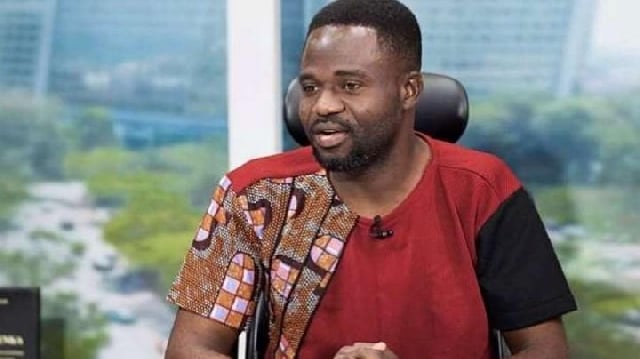Investigative journalist Manasseh Azure Awuni has launched a scathing critique of political leaders who proclaim to be champions of anti-corruption efforts while simultaneously maintaining close ties with individuals and entities embroiled in corruption scandals. Azure Awuni’s statement, “Any president in bed with Jospong but claims to be fighting corruption is nothing but a fraud,” specifically targets the relationship between political figures and Joseph Siaw Agyepong, the CEO of the Jospong Group of Companies, a Ghanaian conglomerate that has faced numerous allegations of corruption and questionable dealings with successive governments. This statement encapsulates a broader concern about the sincerity and effectiveness of anti-corruption campaigns when those in power appear to protect or even benefit from individuals and organizations accused of corrupt practices. The journalist argues that such associations undermine public trust and render anti-corruption rhetoric hollow and meaningless.
Azure Awuni specifically cites former President John Mahama’s public endorsement of Agyepong in 2016 as a prime example of this apparent contradiction. During the 2016 election campaign, Mahama openly praised Agyepong and his business ventures, highlighting his contributions to job creation and economic development. This public display of support, according to Azure Awuni, occurred at a time when serious questions were already being raised about the Jospong Group’s contracts with the government, particularly regarding inflated costs and potentially fraudulent practices. The timing of Mahama’s endorsement, coinciding with the National Democratic Congress (NDC)’s electoral defeat, further fuels Azure Awuni’s argument. He suggests that the public may have interpreted Mahama’s close relationship with Agyepong as evidence of his administration’s tolerance of corruption, ultimately contributing to the NDC’s loss at the polls.
The core of Azure Awuni’s critique revolves around the perceived hypocrisy of politicians who selectively apply their anti-corruption stance. He argues that true commitment to fighting corruption requires equal scrutiny and accountability for all individuals and organizations, regardless of their political affiliations or economic influence. By singling out Mahama’s relationship with Agyepong, Azure Awuni implies that this practice of publicly supporting potentially corrupt figures is not only morally questionable but also politically damaging. The public, he suggests, is increasingly aware of the disconnect between political rhetoric and action, and will ultimately hold leaders accountable for their associations and decisions.
The implications of Azure Awuni’s statement extend beyond the specific case of Mahama and Agyepong. It raises fundamental questions about the nature of political patronage and the challenges of combating corruption in environments where powerful individuals and businesses exert significant influence. The journalist’s assertion that a president who maintains close ties with individuals suspected of corruption is a “fraud” underscores the seriousness of the issue. It suggests that such relationships not only compromise the integrity of the government but also undermine the very foundations of democratic governance. By allowing corruption to flourish, or even actively protecting those who engage in it, political leaders betray the public trust and erode the rule of law.
Azure Awuni’s statement serves as a potent reminder of the importance of independent journalism in holding power to account. Investigative journalists play a crucial role in uncovering corruption, exposing wrongdoing, and informing the public about the actions of their leaders. By speaking truth to power, journalists like Azure Awuni contribute to a more transparent and accountable society. His willingness to challenge powerful figures, even former presidents, demonstrates the vital role of a free press in safeguarding democratic values. His statement also encourages citizens to be more critical of political pronouncements and to demand greater transparency from their leaders.
In conclusion, Manasseh Azure Awuni’s condemnation of politicians who maintain close relationships with individuals accused of corruption while simultaneously claiming to be fighting corruption serves as a sharp critique of the prevailing political landscape. His focus on the relationship between former President Mahama and Jospong CEO Joseph Siaw Agyepong highlights the perceived hypocrisy of such alliances and their potential impact on public trust and electoral outcomes. The journalist’s statement underscores the importance of holding all individuals and organizations accountable for their actions, regardless of their political connections or economic influence. It also reinforces the vital role of independent journalism in exposing corruption and promoting accountability in democratic societies. By challenging the status quo and demanding greater transparency, journalists like Azure Awuni contribute to a more just and equitable society.


